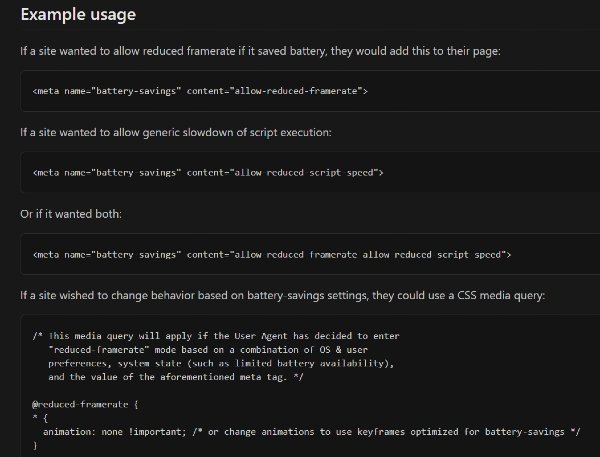As reported by TheWindowsClub, this is done via a battery-savings meta tag. This will allow websites to recognise if a system has gone into battery-saving mode. And from there, websites can then reduce framerates and slow down script execution, among other possible options.
Naturally, one benefit of this feature is a longer battery life for laptops using Google Chrome to surf the web. But in addition to that, it should also help the browser’s reputation as a massive resource hog. Earlier in May, the company started limiting the amount of resources ads can use while being displayed on Chrome. This feature is still being tested via Origin Trial, Google’s closed sandbox for testing features. It will be awhile before it rolls out to the public, if it does roll out at all. And even then users may not even see it in action unless websites adopt it themselves. (Source: TheWindowsClub)
